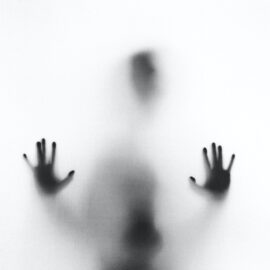

This article is an excerpt from the Shortform book guide to "Burnout" by Emily Nagoski and Amelia Nagoski. Shortform has the world's best summaries and analyses of books you should be reading.
Like this article? Sign up for a free trial here.
What are the biggest expectations of women? Why are women set at such high, yet unrealistic standards?
In Burnout, Amelia and Emily Nagoski elaborate that women are expected to always be mild-mannered, humble, pretty, and willing to give their time and more to the people who need them. This is a standard that many men expect of women, but it’s completely unrealistic for any human to live up to.
Here are just two unrealistic expectations of women that cause stress and anxiety.
1. Pressure to Take on Extra Work
One expectation of women is that they take on extra work than needed. The authors explain that in many cases, patriarchal societies expect women to overexert themselves, and this unrealistic expectation is a major stressor. They add that women spend 50% more time than men on unpaid labor, even in the most balanced nations, because they’re often expected to take care of domestic work, like child care, cleaning, cooking, and so on, as a “second shift” when they get home from work. When women don’t meet these unrealistic expectations, they fear being seen as a bad partner or mother and experience self-doubt—yet another stressor.
(Shortform note: While the traditional meaning of “second shift” is evening or afternoon work shifts, the term has more recently been coined to describe the extra domestic work women take on after returning from their day job. Discussions about women’s second shift have increased dramatically since the Covid-19 pandemic, when women began to take on even more extra work. With schools closing and employees having to work from home, women felt pressured to multi-task throughout the day—to do their career jobs while simultaneously caring for children and maintaining their homes. This increased the rate of female burnout and forced many women to leave their careers to manage the extra work they faced at home.)
2. Pressure to Meet Unrealistic Body Standards
The authors explain that the expectation of women to meet unrealistic body standards and the self-doubt it causes are two more stressors that come from the patriarchy. The female beauty standard—for example, being skinny yet voluptuous and having a tiny nose but large eyes and lips—describes an uncommon appearance that’s unrealistic for the majority of women. However, our culture makes this appearance seem normal—it’s broadcast throughout television, social media, magazines, and endless advertisements for diet plans, pills and potions, and even surgeries.
Further, the pressure to meet these expectations of women and the self-doubt that arises when they can’t cause nearly all women to engage in some kind of weight control, which gives rise to more stress. When these attempts to meet unrealistic standards become futile, almost 50% of women engage in unhealthy weight control like bulimia, anorexia, or taking toxic supplements. This can cause major mental and physical health issues, another source of stress.
(Shortform note: Social scientists have reached a near consensus that the media, especially social media, makes women and girls feel pressured to meet unrealistic body standards, lowering their self-esteem and often causing them to engage in unhealthy behaviors like weight control. However, other experts explain that social media might also have the ability to improve women’s body images and levels of self-compassion, depending on the content they follow. Research found that women who viewed #bodypositive images and quotes on Instagram felt better about their bodies afterward. So if you only follow and view positive content, you may be able to boost your self-image while minimizing contact with body-image stressors.)

———End of Preview———
Like what you just read? Read the rest of the world's best book summary and analysis of Emily Nagoski and Amelia Nagoski's "Burnout" at Shortform.
Here's what you'll find in our full Burnout summary:
- Why women are more likely to suffer physical, mental, and emotional burnout in today's society
- How women can handle these stressors and thrive
- How to recover from burnout and get back on your feet






